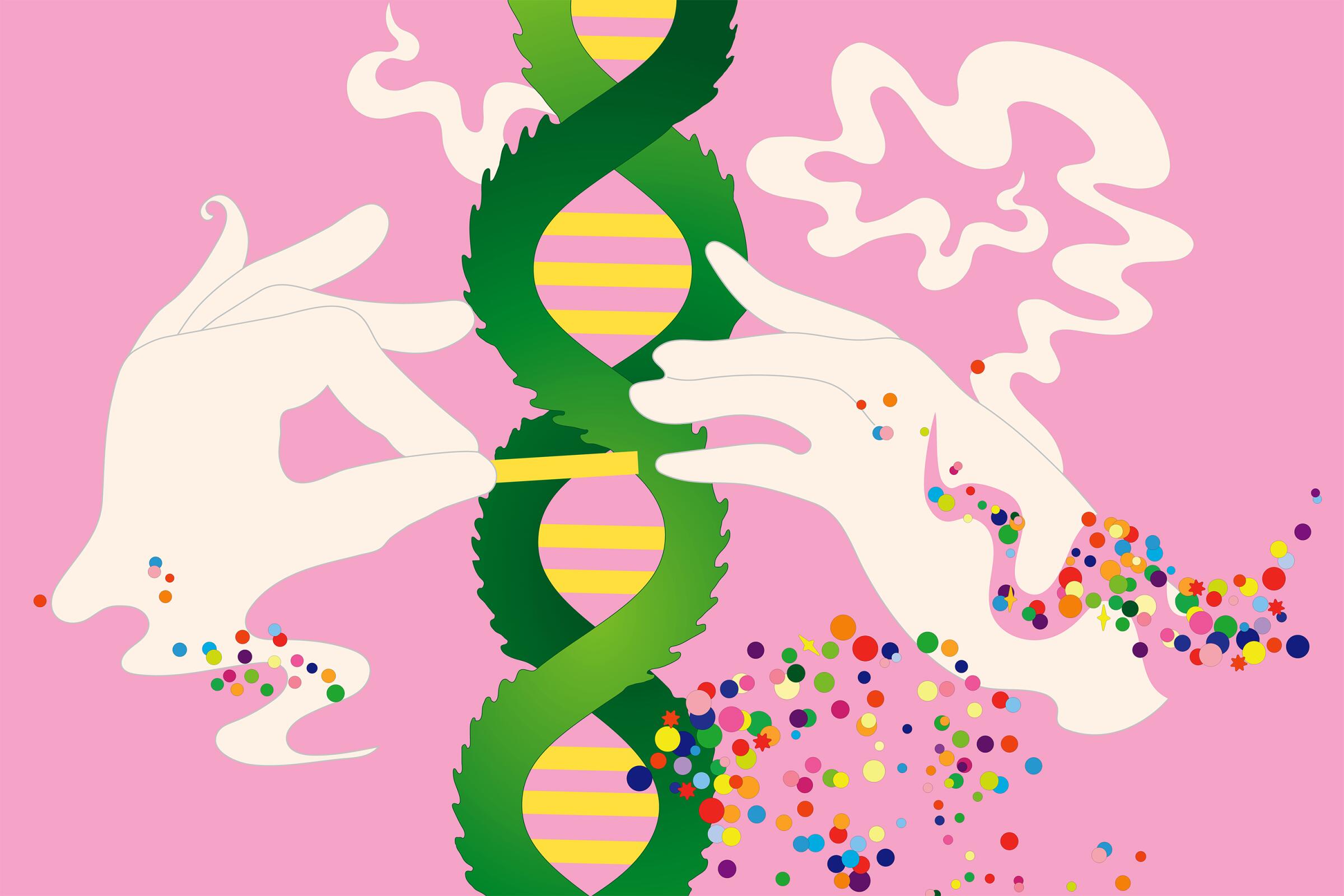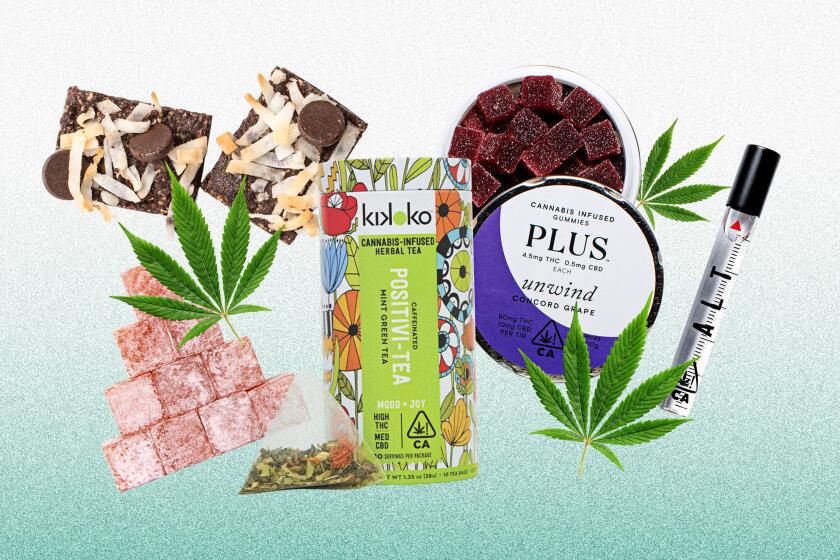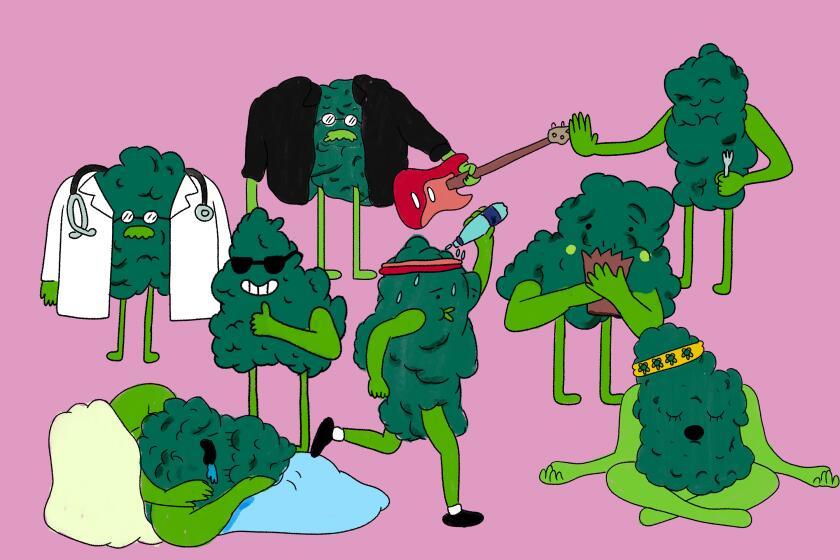The process starts by ordering a DNA collection kit (Endocanna and Strain Genie both charge $199; others are similarly priced). Once it arrives, swab the inside of your cheek and send it off in the mail.
If you have access to your raw DNA data report (from a service such as Ancestry.com or 23andMe, for example) and upload that instead, the price drops significantly, to $49.95 for Endocanna and $29.95 for Strain Genie. Once the proprietary algorithms do their thing and generate a report, you’ll be notified through email. My Endocanna report came back less than a minute after upload, and Strain Genie’s results rolled in at about the two-hour mark.
The information in each report and how it’s presented varies from service to service. However, the idea behind all of them is the same: Variations in your genetic makeup can affect how your body interacts with the two most abundant cannabinoids in the cannabis plant THC (responsible for the psychoactive high) and CBD (which isn’t mind-altering but prized for health and wellness benefits). By highlighting these genetic markers and explaining the potential effects, the reports empower clients to make more informed decisions about what they consume, how much they consume and how they consume it.
May stresses that those genetic variations can affect — not necessarily will affect — your body’s reaction because factors such as lifestyle and nutrition also play a role. “Think of this as your genetic blueprint,” May said. “The things that are fixed, like the skin color you’re born with, how tall you’re going to be or male pattern baldness, you can’t change. The other factors are like on-off switches. Your particular lifestyle — what you do — can turn on or turn off those switches.”
Both services try to fill in some of these blanks by encouraging users to fill out optional health surveys. “It’s not critical,” May said about completing the survey, “but it is a pretty important thing.”
After chewing through your genetic predispositions, the budtender bot algorithm spits out information aimed at helping you maximize the cannabis-consumption experience based on whether your goal is alleviating pain, getting geared up for a busy day or drifting off to sleep. Each of the two services I tried served up at least half a dozen options.
When I spoke with May, I mentioned that I’d expected the result to be one option — a single perfect strain that would tick all the boxes — instead of half a dozen. He responded with a knowing chuckle.
“Cannabis is the only industry [where people] say, ‘Tell me what I should take,’ like it’s a magic pill,” he said. “What I would say is: ‘What are you trying to address?’ If you’re not sleeping very well, there’s a formulation for that. If your challenge is [not being able to] focus, there’s a formulation for that. Look at it like NyQuil and DayQuil; you have a nighttime formulation and a daytime formulation.”
Both services frame their suggestions in similar ways. The results from Endocanna Health focus on two characteristics: the ratio of THC to CBD and the terpene profile (terpenes are the aromatic oils that give cannabis strains their distinct flavors) to look for in a product at any dispensary. There’s also an option to click through and purchase specific products that match that criteria.
Here’s what I learned based on my results from Endocanna Health. If my goal is to use cannabis to get a better night’s sleep, I should be on the hunt for a THC-to-CBD ratio that ranges from 1-1 to 5-1 and that has earthy, peppery myrcene as a dominant terpene and linalool as a secondary terpene. (California law requires cannabis packaging to list the amounts of THC and CBD contained in a product. Most brands also include a list of dominant terpenes, so shopping a dispensary should be fairly straightforward. But you can also enlist the aid of a budtender.)
In the Strain Genie report, an overall ratio and terpene profile is suggested based on genotype (mine is a 2-5 ratio with beta-caryophyllene or alpha-humulene as primary terpenes and limonene or alpha-pinene as secondary terpenes), with specific strains or products served up for each activity category. If I turned to Strain Genie to help me get a better night’s sleep, the strain that tops the list of suggestions is the myrcene-dominant Kosher Kush.















